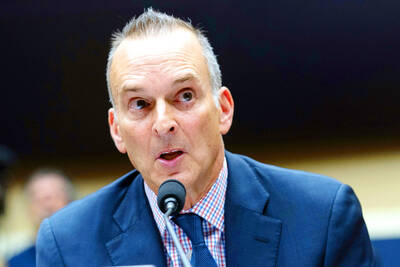Green Bay Packers quarterback Aaron Rodgers used a private jet to escape from Peru with just 15 minutes to spare before the airport was locked down due to the COVID-19 pandemic.
Rodgers yesterday described scenes of panic and fear, as he recounted his hasty exit along with three others.
“It was absolute pandemonium at the airport,” Rogers told the Pat McAfee podcast show, adding that the main reason they got out in time was because they had a private plane.
“When we rolled up to the airport at like seven in the morning, it was wall-to-wall people and you couldn’t move,” Rodgers said. “I was thinking: ‘This isn’t very safe.’ Not many masks on and there was definitely a panic in the air, but somehow we made it down and then they shut the airport down because it was really bad weather.”
“They had a drop-dead time where they were going to shut the entire airport down,” Rodgers added. “We made it by about 15 minutes.”
He likened the March 18 experience to a Hollywood movie.
“That was quite the ordeal,” Rodgers said. “Have you seen the movie Argo? You have? The scene at the end where they’re racing to the airport: Nobody was chasing us, thankfully, or holding us. We didn’t have to speak Farsi to get back into the country, but there were some moments when we worried we were not going to get out.”
The US Department of State said that it has repatriated more than 9,000 stranded Americans from 28 countries after many closed their borders to stem the spread of COVID-19, but it is believed that about 50,000 Americans are still stranded abroad, including in places such as Peru.
Rodgers, who lives in Malibu, California, said that he and his girlfriend, former racecar driver Danica Patrick, are both safe and healthy. None of his Peru traveling companions have the coronavirus either.
Now that he is back in the US, Rodgers has a different set of circumstances to worry about, such as a healthcare system crumbling under the weight of the pandemic, widespread closures and self-isolating, but he did stumble on a stash of in-demand toilet paper at a his local grocery store on Thursday.
“I bought a six-pack and that was a good day,” he said.

Revelations of positive doping tests for nearly two dozen Chinese swimmers that went unpunished sparked an intense flurry of accusations and legal threats between the World Anti-Doping Agency (WADA) and the head of the US drug-fighting organization, who has long been one of WADA’s fiercest critics. WADA on Saturday said it was turning to legal counsel to address a statement released by US Anti-Doping Agency (USADA) CEO Travis Tygart, who said WADA and anti-doping authorities in China swept positive tests “under the carpet by failing to fairly and evenly follow the global rules that apply to everyone else in the world.” The

Taiwanese judoka Yang Yung-wei on Saturday won silver in the men’s under-60kg category at the Asian Judo Championships in Hong Kong. Nicknamed the “judo heartthrob” in Taiwan, the Olympic silver-medalist missed out on his first Asian Championships gold when he lost to Japanese judoka Taiki Nakamura in the finals. Yang defeated three opponents on Saturday to reach the final after receiving a bye through the round of 32. He first topped Laotian Soukphaxay Sithisane in the round of 16 with two seoi nage (over-the-shoulder throws), then ousted Indian Vijay Kumar Yadav in the quarter-finals with his signature ude hishigi sankaku gatame (triangular armlock). He

RALLY: It was only the second time the Taiwanese has partnered with Kudermetova, and the match seemed tight until they won seven points in a row to take the last set 10-2 Taiwan’s Chan Hao-ching and Russia’s Veronika Kudermetova on Sunday won the Porsche Tennis Grand Prix women’s doubles final in Stuttgart, Germany. The pair defeated Norway’s Ulrikke Eikeri and Estonia’s Ingrid Neel 4-6, 6-3, 10-2 in a tightly contested match at the WTA 500 tournament. Chan and Kudermetova fell 4-6 in the first set after having their serve broken three times, although they played increasingly well. They fought back in the second set and managed to break their opponents’ serve in the eighth game to triumph 6-3. In the tiebreaker, Chan and Kudermetova took a 3-0 lead before their opponents clawed back two points, but

Taiwanese gymnast Lee Chih-kai failed to secure an Olympic berth in the pommel horse following a second-place finish at the last qualifier in Doha on Friday, a performance that Lee and his coach called “unconvincing.” The Tokyo Olympics silver medalist finished runner-up in the final after scoring 6.6 for degree of difficulty and 8.800 for execution for a combined score of 15.400. That was just 0.100 short of Jordan’s Ahmad Abu Al Soud, who had qualified for the event in Paris before the Apparatus World Cup series in Qatar’s capital. After missing the final rounds in the first two of four qualifier